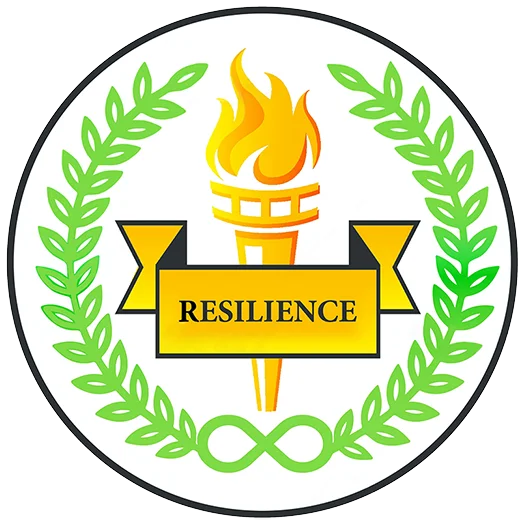Top Citations
Results of Deploying an Emotional Intelligence Program in K-12 Schools
Principals are more ready than ever to bring SEL to their schools.
1. “Social and Emotional Learning for Children with Learning Disability”
2. “The Impact of Childhood Social Skills and Self-Control Training”
https://www.jstor.org/stable/27157295
3. “Rethinking School-Based Bullying Prevention”
https://link.springer.com/article/10.1007/s42380-019-00019-5
4. “Impacts of Schoolwide Social Skills Curricula on Elementary Students with Disabilities”
5. “How to Implement SEL at Your School: 7 Activities”
6. “EI and Social Skills in Science Classes” (2001)
https://mylearningtools.org/wp-content/uploads/2018/10/Source-9.pdf
According to research conducted by Western Illinois University and published in the Journal of Elementary Science Education, the problems facing students are their lack of emotional intelligence and social skills training necessary in order to successfully cooperate with others. The solution involves implementing EI programs and social skills instruction for students.
7. Academic Performance Increases 11% in K-12 from Emotional Intelligence Education “Emotional Intelligence is Important, Too” (2016)
https://mylearningtools.org/wp-content/uploads/2018/10/source10.pdf
8. “RULER- Yale Center of Emotional Intelligence”
http://ei.yale.edu/ruler/ruler-overview/
RULER is “an evidence-based approach for integrating social and emotional learning into schools, developed at the Yale Center for Emotional Intelligence.” It aims to apply hard science and soft skills- supporting the implications of emotional intelligence with statistics. The RULER program (recognizing, understanding, labeling, expressing, regulating emotion) is meant to develop emotional intelligence in children and adults.
9. IES Expands Research in Social Emotional Learning”
https://ies.ed.gov/blogs/research/post/ies-expands-research-in-social-emotional-learning
“Social and emotional learning (SEL) is a key ingredient of high-quality education care, is important for both educators and children, and has been associated with children’s concurrent and later academic and social success.” The Institution of Education Sciences details how it offered grants to Yale’s Ruler program.
10. https://blog.ed.ted.com/2017/02/24/should-emotions-be-taught-in-schools/
Resource 24 is an article by Ted-ed, arguing that Emotional intelligence or skills should rank just as high as Math, science, or reading in schools. The article discusses the importance of emotional intelligence in the work place and how emotional skills like persistence are becoming more desirable in a machine based work force. how children have been taught to hide their emotions for too long, and has a passage on how to properly teach emotional intelligence.
11. http://www.casel.org/wp-content/uploads/2016/01/meta-analysis-child-development-1.pdf
“This article presents findings from a meta-analysis of 213 school-based, universal social and emotional learning (SEL)
programs involving 270,034 kindergarten through high school students. Compared to controls, SEL participants
demonstrated significantly improved social and emotional skills, attitudes, behavior, and academic performance that
reflected an 11-percentile-point gain in achievement. School teaching staff successfully conducted SEL programs. The
use of four recommended practices for developing skills and the presence of implementation problems moderated
program outcomes. The findings add to the growing empirical evidence regarding the positive impact of SEL programs.
Policymakers, educators, and the public can contribute to healthy development of children by supporting the
incorporation of evidence-based SEL programming into standard educational practice.”
12. https://www.sasaustin.org/page/about/social-emotional-learning-sel
“Social Emotional Learning (SEL) encourages the healthy development of self, relationships, and community. Our K-12 program guides our students toward a greater sense of self and self-regulation to build healthy relationships, and provides opportunities for each student to use these skills to positively affect the school community.
The St. Andrew’s SEL program is based on the understanding that the best learning emerges from supportive peer-to-peer and teacher-to-student relationships.”
“Social and emotional learning programs for youth not only immediately improve mental health, social skills, and learning outcomes but also continue to benefit children years later, according to new research from UBC, University of Illinois at Chicago and Loyola University.”
14. https://prodimages.6seconds.org/pdf/case_for_EQ_school.pdf
“Current research in education, psychology, and related fields is accumulating to show the benefits of Social Emotional Learning (SEL) programs for children
as young as preschoolers. Public awareness is catching up to the research. In a time of budget cuts, intense societal pressures on youth, and national
testing standards, the strain on educational funds to fulfill the diverse needs of our children is becoming increasingly apparent. This calls for innovative
approaches to addressing the academic, social, psychological, and physical health needs of developing students. Because of its wide ranging impact,
emotional intelligence prevention and intervention programming may be the key investment that secures a positive future for our children.”
15. “Relationship Between Emotional Intelligence and Effective Leadership”
“The purpose of this study was to conduct a meta-analysis to ascertain if there was empirical evidence to support the inclusion of emotional intelligence as a component of effective leadership. It is proposed in this paper that emotional intelligence is a component of transformative leadership that should be evaluated and developed. In order to conduct the study, precise, composite definitions of emotional intelligence and effective leadership were drawn from the respective literature.”
http://www.joci.ecu.edu/index.php/JoCI/article/viewArticle/36
16. “Emotional Intelligence + Online Learning”
“As students increasingly opt for online classes, it becomes more important for administrators to predict levels of potential academic success. This study examined several factors to characterize successful online college students, including emotional intelligence (EI), persistence, personality, age, gender and previous online experience among students attending community college. Factor analysis revealed two profiles labeled ‘EI’ and ‘Persuasive’. EI was positively correlated with GPA and resilience. Males had significantly higher EI than females.”
http://www.irrodl.org/index.php/irrodl/article/view/385
17. “Emotional Intelligence + Business Education”
“This paper highlights the importance of EI and demonstrates the recognized need for well-developed EI levels in the workplace, and in particular for accountants. It outlines recent research studying emotional intelligence in relation to university students, and concludes with a call for university educators to integrate EI skills in their courses.”
https://ro.uow.edu.au/commpapers/238/
18. “Teaching Emotional Intelligence + Link to Suicide”
“There is a growing body of evidence that suggests that getting back to the Golden Rule through the use of Social and Emotional Learning (SEL) strategies may be a worthwhile investment in promoting an academically solid, bully-free learning environment. “
